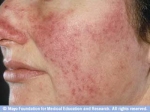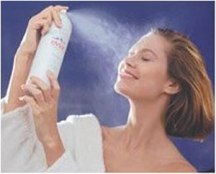by Debi G | Nov 25, 2013

That summer glow has faded into a perfect fall flush. Now, with winter around the corner, how are you getting your skin cold weather-ready?
Whether it’s getting in the habit of removing your makeup every day or experiencing the power of regular exfoliation, developing a healthy skincare habit is worth appreciating.
If your skin is feeling cracked and dry, then try our SOOTHE Regimen, it shields against the biological and environmental aggressors that can trigger inflammation, helps fortify skin’s natural moisture barrier, calms visible redness, and reduces irritation so that you can take comfort in having a healthy-looking complexion every day.


60-Day empty bottle money back guarantee.
For more information on how you can save 10% and get free shipping, message me below.
by Debi G | Aug 9, 2012
While darker skin tones offer a natural SPF ranging from 5-13, this isn’t enough to keep the skin protected. The sun may not have your skin “seeing red,” but that doesn’t mean it’s not making its mark and taking it’s toll. A sunburn is a warning; it is the sun’s way of telling you it’s time to get out of the sun.
 We’ve all heard the myth that people of color don’t tan or don’t sunburn because the skin is already dark. That MYTH is dangerously false.
We’ve all heard the myth that people of color don’t tan or don’t sunburn because the skin is already dark. That MYTH is dangerously false.
There is also a similar misconception about whether or not people with dark skin tones need to wear SPF or not; SPF measures how long skin covered with sunscreen takes to burn compared to uncovered skin.
It’s true that people with darker skin tones don’t sunburn as easily as those with fairer skin. This is due to darker skin tones having an increased amount of epidermal melanin, which provides a natural SPF. Watch out though, even people with very dark skin who have a natural SPF of 13, (that filters twice as much UV radiation) are still susceptible to skin cancer, sun spots and wrinkles.
Those with darker complexions may not see their sun damage and accelerated wrinkles as soon, but they are just as susceptible to other signs of aging like skin growths, hyperpigmentation and uneven skin tone.
Without the redness and burning sensation that accompanies a sunburn, those with darker complexions are less likely to sense the signal to get out of the sun.
With skin cancer on the rise for all ethnic groups, applying a good sunscreen with UVA/UVB ingredients is imperative anti-aging protection and safety insurance that all people should take advantage of year round. No matter what time of day or what the sky looks like!

Leave your comments below or contact me for more information on where to find the best sunscreens!
by Debi G | Jan 22, 2012
In winter months, my eye lids become dry and irritated … help!
 Because your eye area is so delicate, it is more susceptible to weather changes and you will need to make subtle changes to avoid irritation. Here’s what we recommend:
Because your eye area is so delicate, it is more susceptible to weather changes and you will need to make subtle changes to avoid irritation. Here’s what we recommend:
- Use Rodan + Fields® ANTI-AGE Eye Cloths to gently remove eye makeup while simultaneously providing the sensitive eye area with powerful overnight anti-aging and restorative benefits without any residue or stinging, leaving skin feeling clean and refreshed.
- Use ANTI-AGE Multi-Function Eye Cream twice daily. This formula contains powerful collagen-stimulating and anti-inflammatory peptides to reduce irritation, minimize the appearance of crow’s feet, help reduce puffiness, and diminish dark under eye circles while special optical diffusers instantly brighten the eye area.
- Stay away from glittery frosty eye shadow as mica can irritate delicate skin.
- Wear sunglasses to reduce sun damage and wear sun goggles when skiing to reduce tearing and windburn.

by Debi G | Nov 20, 2011
Rosacea (ro-ZA-she-uh) is a chronic, inflammatory skin condition that affects adults. It causes redness in your face and produces small, red, pus-filled bumps or pustules.
Left untreated, rosacea tends to be progressive, which means it gets worse over time. However, in most people rosacea is cyclic. Rosacea signs and symptoms may flare up for a period of weeks to months, and then diminish before flaring up again. Besides acne, rosacea can be mistaken for other skin problems, such as a skin allergy or eczema.

On dark skin, rosacea may be more difficult to distinguish. However, rosacea still causes redness and dilation of small blood vessels on the surface of the skin.
Changes typical of rosacea are redness of the cheeks, nose and central face, with small  red bumps or pustules.
red bumps or pustules.
Though rosacea doesn’t have a cure, treatments can control and reduce the signs and symptoms. If you experience persistent redness of your face, see your doctor for a diagnosis and proper treatment.
via Rosacea – MayoClinic.com.
For more information or further assistance please contact me with the form below.
by Debi G | Nov 16, 2011
 If you’re upping your skin’s water supply with frequent spritzing as a way to increase moisture, you may be creating a problem instead of solving one.
If you’re upping your skin’s water supply with frequent spritzing as a way to increase moisture, you may be creating a problem instead of solving one.
Unless you apply a barrier-repairing moisturizer (one which contains dimethicone, glycerin or hyaluronic acid) immediately after spritzing, you’ll actually dry out skin because as water evaporates it draws moisture away from all layers of your skin.
Feel the need to spritz? Just follow with lightly patting damp skin with a great moisturizer. Not only will you improve hydration over the long haul, you’ll get an immediately refreshed and youthful glow.
For product information or for a business opportunity, please contact me.









